afterLoad (456.47KB) (2.52ms)
afterInitialise (1.27MB) (32.47ms)
afterRoute (874.44KB) (14.42ms)
beforeRenderComponent com_tags (21.22KB) (368μs)
afterRenderComponent com_tags (2.38MB) (96ms)
afterDispatch (65.01KB) (3.57ms)
beforeRenderRawModule mod_articles_category (READ MORE...) (372.3KB) (11.19ms)
Before Access::preloadComponents (all components) (120.7KB) (1.66ms)
After Access::preloadComponents (all components) (103.05KB) (797μs)
Before Access::getAssetRules (id:8 name:com_content) (840B) (25μs)
After Access::getAssetRules (id:8 name:com_content) (7.05KB) (56μs)
afterRenderRawModule mod_articles_category (READ MORE...) (6KB) (88.04ms)
beforeRenderRawModule mod_tags_popular (Search) (4.81KB) (43μs)
afterRenderRawModule mod_tags_popular (Search) (1.23KB) (49.87ms)
beforeRenderRawModule mod_custom (Remember to download Heart Healthy Seniors) (816B) (35μs)
afterRenderRawModule mod_custom (Remember to download Heart Healthy Seniors) (4.86KB) (288μs)
beforeRenderRawModule mod_custom (Get additionel and more detailed knowledge ) (752B) (14μs)
afterRenderRawModule mod_custom (Get additionel and more detailed knowledge ) (1.67KB) (29μs)
beforeRenderRawModule mod_custom (BOOST YOUR IMMUNE DEFENSE) (608B) (11μs)
afterRenderRawModule mod_custom (BOOST YOUR IMMUNE DEFENSE) (928B) (24μs)
beforeRenderRawModule mod_custom (Are you taking supplements) (736B) (9μs)
afterRenderRawModule mod_custom (Are you taking supplements) (1.03KB) (20μs)
beforeRenderRawModule mod_custom (Antiaging) (720B) (9μs)
afterRenderRawModule mod_custom (Antiaging) (1.02KB) (18μs)
beforeRenderRawModule mod_custom (Exercise) (720B) (10μs)
afterRenderRawModule mod_custom (Exercise) (1.02KB) (17μs)
beforeRenderRawModule mod_custom (Check this before you buy a Q10 product) (752B) (9μs)
afterRenderRawModule mod_custom (Check this before you buy a Q10 product) (944B) (19μs)
beforeRenderRawModule mod_custom (Chronic fatigue tied Alan to his bed but Q10 capsules saved him:) (245.53KB) (6.67ms)
afterRenderRawModule mod_custom (Chronic fatigue tied Alan to his bed but Q10 capsules saved him:) (960B) (55μs)
beforeRenderModule mod_custom (Chronic fatigue tied Alan to his bed but Q10 capsules saved him:) (768B) (6μs)
afterRenderModule mod_custom (Chronic fatigue tied Alan to his bed but Q10 capsules saved him:) (1.3KB) (76μs)
beforeRenderRawModule mod_custom (Cholesterol-lowering without side effects:) (368B) (13μs)
afterRenderRawModule mod_custom (Cholesterol-lowering without side effects:) (2.19KB) (26μs)
beforeRenderModule mod_custom (Cholesterol-lowering without side effects:) (752B) (2μs)
afterRenderModule mod_custom (Cholesterol-lowering without side effects:) (1.28KB) (32μs)
beforeRenderModule mod_articles_category (READ MORE...) (21.43KB) (702μs)
afterRenderModule mod_articles_category (READ MORE...) (1.25KB) (44μs)
beforeRenderModule mod_tags_popular (Search) (5.17KB) (13μs)
afterRenderModule mod_tags_popular (Search) (1.27KB) (25μs)
beforeRenderModule mod_custom (Remember to download Heart Healthy Seniors) (1.17KB) (11μs)
afterRenderModule mod_custom (Remember to download Heart Healthy Seniors) (1.3KB) (23μs)
beforeRenderModule mod_custom (Get additionel and more detailed knowledge ) (368B) (9μs)
afterRenderModule mod_custom (Get additionel and more detailed knowledge ) (1.3KB) (22μs)
beforeRenderModule mod_custom (BOOST YOUR IMMUNE DEFENSE) (224B) (9μs)
afterRenderModule mod_custom (BOOST YOUR IMMUNE DEFENSE) (1.28KB) (21μs)
beforeRenderModule mod_custom (Are you taking supplements) (352B) (9μs)
afterRenderModule mod_custom (Are you taking supplements) (1.28KB) (21μs)
beforeRenderModule mod_custom (Antiaging) (336B) (9μs)
afterRenderModule mod_custom (Antiaging) (1.27KB) (20μs)
beforeRenderModule mod_custom (Exercise) (336B) (9μs)
afterRenderModule mod_custom (Exercise) (1.25KB) (21μs)
beforeRenderModule mod_custom (Check this before you buy a Q10 product) (352B) (8μs)
afterRenderModule mod_custom (Check this before you buy a Q10 product) (1.28KB) (21μs)
beforeRenderRawModule mod_menu (Main menu-US) (20.94KB) (2.6ms)
afterRenderRawModule mod_menu (Main menu-US) (158.16KB) (2.72ms)
beforeRenderModule mod_menu (Main menu-US) (720B) (7μs)
afterRenderModule mod_menu (Main menu-US) (4.36KB) (69μs)
beforeRenderRawModule mod_languages (Sprogskift) (3.44KB) (1.03ms)
afterRenderRawModule mod_languages (Sprogskift) (26.89KB) (1.91ms)
beforeRenderModule mod_languages (Sprogskift) (720B) (8μs)
afterRenderModule mod_languages (Sprogskift) (5.31KB) (25μs)
beforeRenderRawModule mod_finder () (6.34KB) (16μs)
afterRenderRawModule mod_finder () (164.91KB) (5.89ms)
beforeRenderModule mod_finder () (704B) (8μs)
afterRenderModule mod_finder () (5.79KB) (46μs)
beforeRenderRawModule mod_custom () (6.62KB) (188μs)
afterRenderRawModule mod_custom () (23.21KB) (1.6ms)
beforeRenderModule mod_custom () (704B) (9μs)
afterRenderModule mod_custom () (1.23KB) (65μs)
beforeRenderRawModule mod_menu (Main menu-US) (5.07KB) (134μs)
afterRenderRawModule mod_menu (Main menu-US) (5.8KB) (718μs)
beforeRenderModule mod_menu (Main menu-US) (720B) (3μs)
afterRenderModule mod_menu (Main menu-US) (1.25KB) (48μs)
beforeRenderRawModule mod_languages (Sprogskift Mobil) (912B) (17μs)
afterRenderRawModule mod_languages (Sprogskift Mobil) (3.89KB) (2.8ms)
beforeRenderModule mod_languages (Sprogskift Mobil) (720B) (8μs)
afterRenderModule mod_languages (Sprogskift Mobil) (1.27KB) (42μs)
beforeRenderRawModule mod_finder () (2.3KB) (15μs)
afterRenderRawModule mod_finder () (5.88KB) (992μs)
beforeRenderModule mod_finder () (704B) (8μs)
afterRenderModule mod_finder () (1.23KB) (61μs)
beforeRenderRawModule mod_custom () (8.66KB) (201μs)
afterRenderRawModule mod_custom () (904B) (175μs)
beforeRenderModule mod_custom () (704B) (2μs)
afterRenderModule mod_custom () (2.43KB) (47μs)
beforeRenderRawModule mod_custom () (688B) (87μs)
afterRenderRawModule mod_custom () (896B) (109μs)
beforeRenderModule mod_custom () (704B) (3μs)
afterRenderModule mod_custom () (2.71KB) (23μs)
afterRender (360.59KB) (13.09ms)
| 1 x afterRenderComponent com_tags (2.38MB) (27.84%) | 96.00ms |
| 1 x afterRenderRawModule mod_articles_category (READ MORE...) (6KB) (25.53%) | 88.04ms |
| 1 x afterRenderRawModule mod_tags_popular (Search) (1.23KB) (14.46%) | 49.87ms |
| 1 x afterInitialise (1.27MB) (9.42%) | 32.47ms |
| 1 x afterRoute (874.44KB) (4.18%) | 14.42ms |
| 1 x afterRender (360.59KB) (3.8%) | 13.09ms |
| 1 x beforeRenderRawModule mod_articles_category (READ MORE...) (372.3KB) (3.24%) | 11.19ms |
| 1 x beforeRenderRawModule mod_custom (Chronic fatigue tied Alan to his bed but Q10 capsules saved him:) (245.53KB) (1.93%) | 6.67ms |
| 1 x afterRenderRawModule mod_finder () (164.91KB) (1.71%) | 5.89ms |
| 1 x afterDispatch (65.01KB) (1.03%) | 3.57ms |
| 1 x afterRenderRawModule mod_languages (Sprogskift Mobil) (3.89KB) (0.81%) | 2.80ms |
| 1 x afterRenderRawModule mod_menu (Main menu-US) (158.16KB) (0.79%) | 2.72ms |
| 1 x beforeRenderRawModule mod_menu (Main menu-US) (20.94KB) (0.75%) | 2.60ms |
| 1 x afterLoad (456.47KB) (0.73%) | 2.52ms |
| 1 x afterRenderRawModule mod_languages (Sprogskift) (26.89KB) (0.55%) | 1.91ms |
| 1 x Before Access::preloadComponents (all components) (120.7KB) (0.48%) | 1.66ms |
| 1 x afterRenderRawModule mod_custom () (23.21KB) (0.46%) | 1.60ms |
| 1 x beforeRenderRawModule mod_languages (Sprogskift) (3.44KB) (0.3%) | 1.03ms |
| 1 x afterRenderRawModule mod_finder () (5.88KB) (0.29%) | 992μs |
| 1 x After Access::preloadComponents (all components) (103.05KB) (0.23%) | 797μs |
| 1 x afterRenderRawModule mod_menu (Main menu-US) (5.8KB) (0.21%) | 718μs |
| 1 x beforeRenderModule mod_articles_category (READ MORE...) (21.43KB) (0.2%) | 702μs |
| 1 x beforeRenderComponent com_tags (21.22KB) (0.11%) | 368μs |
| 1 x afterRenderRawModule mod_custom (Remember to download Heart Healthy Seniors) (4.86KB) (0.08%) | 288μs |
| 1 x beforeRenderRawModule mod_custom () (8.66KB) (0.06%) | 201μs |
| 1 x beforeRenderRawModule mod_custom () (6.62KB) (0.05%) | 188μs |
| 1 x afterRenderRawModule mod_custom () (904B) (0.05%) | 175μs |
| 1 x beforeRenderRawModule mod_menu (Main menu-US) (5.07KB) (0.04%) | 134μs |
| 1 x afterRenderRawModule mod_custom () (896B) (0.03%) | 109μs |
| 1 x beforeRenderRawModule mod_custom () (688B) (0.03%) | 87μs |
| 1 x afterRenderModule mod_custom (Chronic fatigue tied Alan to his bed but Q10 capsules saved him:) (1.3KB) (0.02%) | 76μs |
| 1 x afterRenderModule mod_menu (Main menu-US) (4.36KB) (0.02%) | 69μs |
| 1 x afterRenderModule mod_custom () (1.23KB) (0.02%) | 65μs |
| 1 x afterRenderModule mod_finder () (1.23KB) (0.02%) | 61μs |
| 1 x After Access::getAssetRules (id:8 name:com_content) (7.05KB) (0.02%) | 56μs |
| 1 x afterRenderRawModule mod_custom (Chronic fatigue tied Alan to his bed but Q10 capsules saved him:) (960B) (0.02%) | 55μs |
| 1 x afterRenderModule mod_menu (Main menu-US) (1.25KB) (0.01%) | 48μs |
| 1 x afterRenderModule mod_custom () (2.43KB) (0.01%) | 47μs |
| 1 x afterRenderModule mod_finder () (5.79KB) (0.01%) | 46μs |
| 1 x afterRenderModule mod_articles_category (READ MORE...) (1.25KB) (0.01%) | 44μs |
| 1 x beforeRenderRawModule mod_tags_popular (Search) (4.81KB) (0.01%) | 43μs |
| 1 x afterRenderModule mod_languages (Sprogskift Mobil) (1.27KB) (0.01%) | 42μs |
| 1 x beforeRenderRawModule mod_custom (Remember to download Heart Healthy Seniors) (816B) (0.01%) | 35μs |
| 1 x afterRenderModule mod_custom (Cholesterol-lowering without side effects:) (1.28KB) (0.01%) | 32μs |
| 1 x afterRenderRawModule mod_custom (Get additionel and more detailed knowledge ) (1.67KB) (0.01%) | 29μs |
| 1 x afterRenderRawModule mod_custom (Cholesterol-lowering without side effects:) (2.19KB) (0.01%) | 26μs |
| 1 x Before Access::getAssetRules (id:8 name:com_content) (840B) (0.01%) | 25μs |
| 1 x afterRenderModule mod_tags_popular (Search) (1.27KB) (0.01%) | 25μs |
| 1 x afterRenderModule mod_languages (Sprogskift) (5.31KB) (0.01%) | 25μs |
| 1 x afterRenderRawModule mod_custom (BOOST YOUR IMMUNE DEFENSE) (928B) (0.01%) | 24μs |
| 1 x afterRenderModule mod_custom (Remember to download Heart Healthy Seniors) (1.3KB) (0.01%) | 23μs |
| 1 x afterRenderModule mod_custom () (2.71KB) (0.01%) | 23μs |
| 1 x afterRenderModule mod_custom (Get additionel and more detailed knowledge ) (1.3KB) (0.01%) | 22μs |
| 1 x afterRenderModule mod_custom (BOOST YOUR IMMUNE DEFENSE) (1.28KB) (0.01%) | 21μs |
| 1 x afterRenderModule mod_custom (Are you taking supplements) (1.28KB) (0.01%) | 21μs |
| 1 x afterRenderModule mod_custom (Exercise) (1.25KB) (0.01%) | 21μs |
| 1 x afterRenderModule mod_custom (Check this before you buy a Q10 product) (1.28KB) (0.01%) | 21μs |
| 1 x afterRenderRawModule mod_custom (Are you taking supplements) (1.03KB) (0.01%) | 20μs |
| 1 x afterRenderModule mod_custom (Antiaging) (1.27KB) (0.01%) | 20μs |
| 1 x afterRenderRawModule mod_custom (Check this before you buy a Q10 product) (944B) (0.01%) | 19μs |
| 1 x afterRenderRawModule mod_custom (Antiaging) (1.02KB) (0.01%) | 18μs |
| 1 x afterRenderRawModule mod_custom (Exercise) (1.02KB) (0%) | 17μs |
| 1 x beforeRenderRawModule mod_languages (Sprogskift Mobil) (912B) (0%) | 17μs |
| 1 x beforeRenderRawModule mod_finder () (6.34KB) (0%) | 16μs |
| 2 x beforeRenderModule mod_finder () (704B) (0%) | 16μs |
| 1 x beforeRenderRawModule mod_finder () (2.3KB) (0%) | 15μs |
| 1 x beforeRenderRawModule mod_custom (Get additionel and more detailed knowledge ) (752B) (0%) | 14μs |
| 3 x beforeRenderModule mod_custom () (704B) (0%) | 14μs |
| 1 x beforeRenderRawModule mod_custom (Cholesterol-lowering without side effects:) (368B) (0%) | 13μs |
| 1 x beforeRenderModule mod_tags_popular (Search) (5.17KB) (0%) | 13μs |
| 1 x beforeRenderRawModule mod_custom (BOOST YOUR IMMUNE DEFENSE) (608B) (0%) | 11μs |
| 1 x beforeRenderModule mod_custom (Remember to download Heart Healthy Seniors) (1.17KB) (0%) | 11μs |
| 1 x beforeRenderRawModule mod_custom (Exercise) (720B) (0%) | 10μs |
| 2 x beforeRenderModule mod_menu (Main menu-US) (720B) (0%) | 10μs |
| 1 x beforeRenderRawModule mod_custom (Antiaging) (720B) (0%) | 9μs |
| 1 x beforeRenderModule mod_custom (Antiaging) (336B) (0%) | 9μs |
| 1 x beforeRenderModule mod_custom (Exercise) (336B) (0%) | 9μs |
| 1 x beforeRenderRawModule mod_custom (Are you taking supplements) (736B) (0%) | 9μs |
| 1 x beforeRenderRawModule mod_custom (Check this before you buy a Q10 product) (752B) (0%) | 9μs |
| 1 x beforeRenderModule mod_custom (Get additionel and more detailed knowledge ) (368B) (0%) | 9μs |
| 1 x beforeRenderModule mod_custom (BOOST YOUR IMMUNE DEFENSE) (224B) (0%) | 9μs |
| 1 x beforeRenderModule mod_custom (Are you taking supplements) (352B) (0%) | 9μs |
| 1 x beforeRenderModule mod_languages (Sprogskift) (720B) (0%) | 8μs |
| 1 x beforeRenderModule mod_custom (Check this before you buy a Q10 product) (352B) (0%) | 8μs |
| 1 x beforeRenderModule mod_languages (Sprogskift Mobil) (720B) (0%) | 8μs |
| 1 x beforeRenderModule mod_custom (Chronic fatigue tied Alan to his bed but Q10 capsules saved him:) (768B) (0%) | 6μs |
| 1 x beforeRenderModule mod_custom (Cholesterol-lowering without side effects:) (752B) (0%) | 2μs |
 It is not the actual COVID-19 virus that can become lethal. It is the immune system’s overreaction with hyperinflammation and a storm of cytokines that destroys healthy tissue in the lungs, the cardiovascular system, and other places in the body, according to a new article that is published in The Lancet. The capacity of the immune system determines if an infection like COVID-19 is either harmless or life-threatening. For that reason, hygienic measures, masks, isolation, and delayed vaccines are not sufficient. We also need to bolster our immune system against COVID-19 and other pandemics that may occur in the future. Let’s look closer at vitamin C, vitamin D, selenium and zinc, all of which are essential for preventing a well-functioning immune system from going off its rails. What is also worth mentioning is that many people lack these nutrients, especially older people and other exposed groups.
It is not the actual COVID-19 virus that can become lethal. It is the immune system’s overreaction with hyperinflammation and a storm of cytokines that destroys healthy tissue in the lungs, the cardiovascular system, and other places in the body, according to a new article that is published in The Lancet. The capacity of the immune system determines if an infection like COVID-19 is either harmless or life-threatening. For that reason, hygienic measures, masks, isolation, and delayed vaccines are not sufficient. We also need to bolster our immune system against COVID-19 and other pandemics that may occur in the future. Let’s look closer at vitamin C, vitamin D, selenium and zinc, all of which are essential for preventing a well-functioning immune system from going off its rails. What is also worth mentioning is that many people lack these nutrients, especially older people and other exposed groups.








 Lack of vitamin D is rather common and taking large quantities of the nutrient can not only protect against virus infections like COVID-19 but even counteract the life-threatening complications in those affected with the disease, according to a new, comprehensive, Irish report (TILDA) from Trinity College Dublin (University of Dublin in Ireland). The TILDA report supports many other published studies showing that the immune system is unable to function without vitamin D. The main focus in the battle against COVID-19 is hygiene, isolation, and delayed immunization with vaccines. However, it is also essential to bolster the immune defense, as this determines the difference between being able to ward off the infection, suffer mild symptoms only, or succumb. The scientists recommend that all adults take a high-dosed vitamin D supplement, especially older people, nursing home residents, chronically ill people, hospital patients, health professionals and other exposed groups. That way, we are better protected against future epidemics.
Lack of vitamin D is rather common and taking large quantities of the nutrient can not only protect against virus infections like COVID-19 but even counteract the life-threatening complications in those affected with the disease, according to a new, comprehensive, Irish report (TILDA) from Trinity College Dublin (University of Dublin in Ireland). The TILDA report supports many other published studies showing that the immune system is unable to function without vitamin D. The main focus in the battle against COVID-19 is hygiene, isolation, and delayed immunization with vaccines. However, it is also essential to bolster the immune defense, as this determines the difference between being able to ward off the infection, suffer mild symptoms only, or succumb. The scientists recommend that all adults take a high-dosed vitamin D supplement, especially older people, nursing home residents, chronically ill people, hospital patients, health professionals and other exposed groups. That way, we are better protected against future epidemics.

 The coronavirus has spread from Wuhan in China to a number of continents, where it has caused massive fear and affected daily life and the global economy. Although most people that get the infection experience a mild course of events, the greatest fear is the potentially life-threatening complications in the respiratory system caused by oxidative stress, which have already taken thousands of human lives. Chinese scientists now call for early intravenous therapy with large doses of vitamin C to prevent oxidative stress and the life-threatening complications that follow in the wake of a derailed immune system. Many researchers also claim that higher intake of vitamin C from dietary sources or supplements help prevent by boosting and regulating the immune system in the upper respiratory tract. The same goes for vitamin D and selenium.
The coronavirus has spread from Wuhan in China to a number of continents, where it has caused massive fear and affected daily life and the global economy. Although most people that get the infection experience a mild course of events, the greatest fear is the potentially life-threatening complications in the respiratory system caused by oxidative stress, which have already taken thousands of human lives. Chinese scientists now call for early intravenous therapy with large doses of vitamin C to prevent oxidative stress and the life-threatening complications that follow in the wake of a derailed immune system. Many researchers also claim that higher intake of vitamin C from dietary sources or supplements help prevent by boosting and regulating the immune system in the upper respiratory tract. The same goes for vitamin D and selenium. Several studies have shown that optimizing your blood vitamin D levels with supplementation reduces the risk of contracting respiratory infections such as COVID-19. A new Hungarian study, published in Nutrients, has also found that very high doses of vitamin D given to hospitalized COVID-19 patients can reduce the risk of prolonged hospital stays and death due to severe complications.
Several studies have shown that optimizing your blood vitamin D levels with supplementation reduces the risk of contracting respiratory infections such as COVID-19. A new Hungarian study, published in Nutrients, has also found that very high doses of vitamin D given to hospitalized COVID-19 patients can reduce the risk of prolonged hospital stays and death due to severe complications. Magnesium is involved in hundreds of chemical reactions in the body, including the activation of vitamin D that we synthesize from sun exposure or take in supplement form. For that reason, magnesium is essential for the immune defense and its ability to fight COVID-19. Moreover, low magnesium levels in the body can foreshadow complications in connection with a COVID-19 infection, according to a study that is published in Nutrients. The scientists therefore say that it is relevant to measure hospitalized patients’ magnesium levels and correct any deficiencies. Many people, especially older individuals, get too little magnesium from their diets, and several types of medicine can impair the uptake and utilization of the nutrient.
Magnesium is involved in hundreds of chemical reactions in the body, including the activation of vitamin D that we synthesize from sun exposure or take in supplement form. For that reason, magnesium is essential for the immune defense and its ability to fight COVID-19. Moreover, low magnesium levels in the body can foreshadow complications in connection with a COVID-19 infection, according to a study that is published in Nutrients. The scientists therefore say that it is relevant to measure hospitalized patients’ magnesium levels and correct any deficiencies. Many people, especially older individuals, get too little magnesium from their diets, and several types of medicine can impair the uptake and utilization of the nutrient. Vitamin D is important for a swift and effective immune response. Once COVID-19 infections become complicated and life-threatening, it is not the virus that is the threat but the fact that the immune defense reacts too slowly and then causes hyperinflammation that damages healthy tissues in the respiratory system and circulatory system.
Vitamin D is important for a swift and effective immune response. Once COVID-19 infections become complicated and life-threatening, it is not the virus that is the threat but the fact that the immune defense reacts too slowly and then causes hyperinflammation that damages healthy tissues in the respiratory system and circulatory system. Vitamin D is of vital importance to a well-functioning immune defense and it protects against virus infections. This has been confirmed by Denmark’s infection control agency, Statens Serum Institut, and researchers from Harvard University in Boston, USA. In a study, the Danish and American scientists found that having low levels of vitamin D in the blood is associated with a greater risk of severe disease outcome in patients with COVID-19.
Vitamin D is of vital importance to a well-functioning immune defense and it protects against virus infections. This has been confirmed by Denmark’s infection control agency, Statens Serum Institut, and researchers from Harvard University in Boston, USA. In a study, the Danish and American scientists found that having low levels of vitamin D in the blood is associated with a greater risk of severe disease outcome in patients with COVID-19. The immune system cannot function without vitamin D. In fact, blood levels of the nutrient should ideally be higher than the official threshold values for optimal protection against COVID-19 and other respiratory infections, according to a new study from the University of Chicago Medicine that is published in JAMA. An estimated 50 percent or so of the world’s population is believed to lack vitamin D, and people with dark skin are particularly vulnerable. It has been shown in previous studies that the majority of people who test positive for COVID-19 lack vitamin D. Therefore, scientists plan to look at whether daily vitamin D supplementation can help prevent COVID-19 infections or reduce serious symptoms. The researchers mention that it often takes high-dosed supplements to optimize levels of vitamin D in the blood.
The immune system cannot function without vitamin D. In fact, blood levels of the nutrient should ideally be higher than the official threshold values for optimal protection against COVID-19 and other respiratory infections, according to a new study from the University of Chicago Medicine that is published in JAMA. An estimated 50 percent or so of the world’s population is believed to lack vitamin D, and people with dark skin are particularly vulnerable. It has been shown in previous studies that the majority of people who test positive for COVID-19 lack vitamin D. Therefore, scientists plan to look at whether daily vitamin D supplementation can help prevent COVID-19 infections or reduce serious symptoms. The researchers mention that it often takes high-dosed supplements to optimize levels of vitamin D in the blood. Selenium is of vital importance to a strong immune defense. Still, selenium deficiency is a common problem and it increases the risk of viral infections such as influenza and the coronavirus from China, which is feared to turn into a global pandemic. It is a problem that selenium deficiency in infected animals and humans causes the virus to mutate and become more aggressive. Because of selenium’s important role as a powerful antioxidant, being deficient of this micronutrient may leave the body vulnerable to oxidative stress, which can cause tissue damage and complicate the virus infection. It is therefore important to get enough selenium at all times, as it also increases our resistance towards other viral infections such as herpes, HIV, and hepatitis, according to an article published in Nutrients.
Selenium is of vital importance to a strong immune defense. Still, selenium deficiency is a common problem and it increases the risk of viral infections such as influenza and the coronavirus from China, which is feared to turn into a global pandemic. It is a problem that selenium deficiency in infected animals and humans causes the virus to mutate and become more aggressive. Because of selenium’s important role as a powerful antioxidant, being deficient of this micronutrient may leave the body vulnerable to oxidative stress, which can cause tissue damage and complicate the virus infection. It is therefore important to get enough selenium at all times, as it also increases our resistance towards other viral infections such as herpes, HIV, and hepatitis, according to an article published in Nutrients. Vitamin C has a vital role in our immune defense, and having low blood levels of the nutrient can affect the severity of infections such as COVID-19 and influenza, according to a review article published in Aging and Disease. The scientists behind the study also refer to other studies that have looked at large doses of intravenous vitamin C given to patients with sepsis and life-threatening COVID-19 infections. Vitamin C deficiency is a widespread problem for various reasons and that only adds to the problem.
Vitamin C has a vital role in our immune defense, and having low blood levels of the nutrient can affect the severity of infections such as COVID-19 and influenza, according to a review article published in Aging and Disease. The scientists behind the study also refer to other studies that have looked at large doses of intravenous vitamin C given to patients with sepsis and life-threatening COVID-19 infections. Vitamin C deficiency is a widespread problem for various reasons and that only adds to the problem. Vitamin D plays an overlooked role in the immune defense. Being deficient of the nutrient increases your risk of bacterial pneumonia by up to 60 percent, according to a large Danish study of 116,000 participants that was carried out by scientists from Herlev Hospital, Gentofte Hospital, and the University of Copenhagen.
Vitamin D plays an overlooked role in the immune defense. Being deficient of the nutrient increases your risk of bacterial pneumonia by up to 60 percent, according to a large Danish study of 116,000 participants that was carried out by scientists from Herlev Hospital, Gentofte Hospital, and the University of Copenhagen.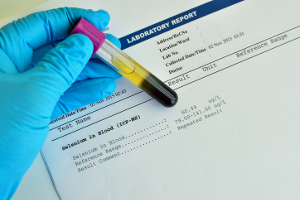 An international science team from the University of Surrey in England has found a link between low selenium levels in the soil and the risk od COVID-19 infections becoming lethal. Professor Margaret Rayman, who headed the study, has spent decades studying the global lack of selenium that is known to impair the ability of the immune system to tackle virus infections and new epidemics. The farmlands in large parts of the world, including Europe and China, are low in selenium, and it is vital to have more focus on this essential nutrient.
An international science team from the University of Surrey in England has found a link between low selenium levels in the soil and the risk od COVID-19 infections becoming lethal. Professor Margaret Rayman, who headed the study, has spent decades studying the global lack of selenium that is known to impair the ability of the immune system to tackle virus infections and new epidemics. The farmlands in large parts of the world, including Europe and China, are low in selenium, and it is vital to have more focus on this essential nutrient. Magnesium plays a vital role in the immune defense by regulating inflammation, which is a property that determines the body’s ability to tackle COVID-19 and other infections. People who lack magnesium have an increased risk of being infected with COVID-19 and also that the infection becomes life-threatening. This was shown in a large American population study that also revealed how widespread a problem magnesium deficiency is. The scientists therefore assume that an optimization of people’s magnesium status in the future can contribute to the protection against COVID-19 and similar respiratory infections. It is also important to get enough vitamin D because the two nutrients interact with each other.
Magnesium plays a vital role in the immune defense by regulating inflammation, which is a property that determines the body’s ability to tackle COVID-19 and other infections. People who lack magnesium have an increased risk of being infected with COVID-19 and also that the infection becomes life-threatening. This was shown in a large American population study that also revealed how widespread a problem magnesium deficiency is. The scientists therefore assume that an optimization of people’s magnesium status in the future can contribute to the protection against COVID-19 and similar respiratory infections. It is also important to get enough vitamin D because the two nutrients interact with each other.
 Although the course of disease for most people with COVID-19 is rather mild, the greatest concern is the life-threatening complications in the respiratory tract caused by oxidative stress and cytokine storm where the immune system attacks healthy tissue. Scientists are busy looking for new therapies such as intravenous vitamin C that is about to be tested in a new Chinese placebo-controlled study, according to an article that is published in Critical Care. Several researchers say that vitamin C from dietary sources and supplements has a preventive effect because it strengthens and regulates the immune defense in the respiratory tract. The same is the case with vitamin D and selenium.
Although the course of disease for most people with COVID-19 is rather mild, the greatest concern is the life-threatening complications in the respiratory tract caused by oxidative stress and cytokine storm where the immune system attacks healthy tissue. Scientists are busy looking for new therapies such as intravenous vitamin C that is about to be tested in a new Chinese placebo-controlled study, according to an article that is published in Critical Care. Several researchers say that vitamin C from dietary sources and supplements has a preventive effect because it strengthens and regulates the immune defense in the respiratory tract. The same is the case with vitamin D and selenium. Most chronic pulmonary diseases – including asthma, bronchitis, and COPD (Chronic Obstructive Pulmonary Disease) – are characterized by chronic inflammation that makes both the symptoms and the prognosis worse. Fish and fish oil supplements contain specific omega-3 fatty acids that appear to have an anti-inflammatory effect and may therefore be useful as both prevention and therapy for chronic pulmonary diseases. This was demonstrated in a large American population study that also included Europeans. What the researchers also mention is that people who fail to meet the official guidelines for fish consumption are often at increased risk of developing chronic lung diseases.
Most chronic pulmonary diseases – including asthma, bronchitis, and COPD (Chronic Obstructive Pulmonary Disease) – are characterized by chronic inflammation that makes both the symptoms and the prognosis worse. Fish and fish oil supplements contain specific omega-3 fatty acids that appear to have an anti-inflammatory effect and may therefore be useful as both prevention and therapy for chronic pulmonary diseases. This was demonstrated in a large American population study that also included Europeans. What the researchers also mention is that people who fail to meet the official guidelines for fish consumption are often at increased risk of developing chronic lung diseases. Omega-3 and omega-6 fatty acids in our diet have opposite effects on the severity of asthma in vulnerable children. Omega-3 appears to reduce the severity of asthma symptoms, while omega-6 seems to make the symptoms worse, according to an article published in the American Journal of Respiratory and Clinical Care Medicine. The problem with modern diets is that they tend to contain far too little omega-3 and far too much omega-6. However, this is something one can correct with help from dietary changes and fish oil supplements.
Omega-3 and omega-6 fatty acids in our diet have opposite effects on the severity of asthma in vulnerable children. Omega-3 appears to reduce the severity of asthma symptoms, while omega-6 seems to make the symptoms worse, according to an article published in the American Journal of Respiratory and Clinical Care Medicine. The problem with modern diets is that they tend to contain far too little omega-3 and far too much omega-6. However, this is something one can correct with help from dietary changes and fish oil supplements.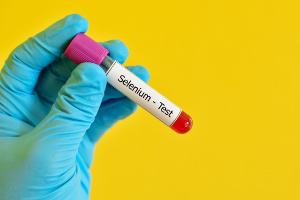 The corona crisis has shed new light on the importance of having a strong immune defense, one that protects us against virus infections in the long run. Selenium plays a vital role for a number of different reasons but, unfortunately, there is widespread deficiency which increases the risk of infections and related complications. In a new review article that is published in International Journal of Molecular Sciences, the authors look closer at selenium’s role in connection with different types of virus infections such as influenza, HIV, and hepatitis with particular focus on COVID-19. The purpose of their article is to inform about new nutritional strategies that may contribute to a strong and well-functioning immune defense – mainly when it comes to COVID-19 and virus types that tend to mutate all the time.
The corona crisis has shed new light on the importance of having a strong immune defense, one that protects us against virus infections in the long run. Selenium plays a vital role for a number of different reasons but, unfortunately, there is widespread deficiency which increases the risk of infections and related complications. In a new review article that is published in International Journal of Molecular Sciences, the authors look closer at selenium’s role in connection with different types of virus infections such as influenza, HIV, and hepatitis with particular focus on COVID-19. The purpose of their article is to inform about new nutritional strategies that may contribute to a strong and well-functioning immune defense – mainly when it comes to COVID-19 and virus types that tend to mutate all the time. There is worldwide focus on finding better ways to prevent and treat COVID-19 because of the limited effect of vaccines. It is important to understand why the infections are harmless in most cases and why only a small number of people are affected by ARDS (acute respiratory distress syndrome), which is complicated and involves hyperinflammation. What represents the real problem here and what makes these infections life-threatening is a derailed and overactive immune defense. Multiple studies have already demonstrated that lack of vitamin D increases the risk of being infected with COVID-19 ending up in intensive care, and the studies also show that vitamin D supplements have a therapeutic potential. In a new review article that is published in Clinical and Molecular Allergy, researchers look closer at the synergy between vitamin D, magnesium, and zinc in relation to their ability to regulate the immune system and as potential therapeutic agents. It is also vital to have enough selenium, a nutrient that many people lack.
There is worldwide focus on finding better ways to prevent and treat COVID-19 because of the limited effect of vaccines. It is important to understand why the infections are harmless in most cases and why only a small number of people are affected by ARDS (acute respiratory distress syndrome), which is complicated and involves hyperinflammation. What represents the real problem here and what makes these infections life-threatening is a derailed and overactive immune defense. Multiple studies have already demonstrated that lack of vitamin D increases the risk of being infected with COVID-19 ending up in intensive care, and the studies also show that vitamin D supplements have a therapeutic potential. In a new review article that is published in Clinical and Molecular Allergy, researchers look closer at the synergy between vitamin D, magnesium, and zinc in relation to their ability to regulate the immune system and as potential therapeutic agents. It is also vital to have enough selenium, a nutrient that many people lack.
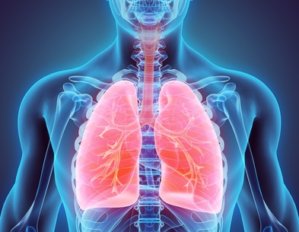

 Ever since the COVID-19 pandemic started, scientists have focused on vitamin D. This nutrient strengthens and regulates the immune defense in a number of different ways. Numerous studies have shown that lack of vitamin D increases the risk of being infected with COVID-19 and running into complications. High-dosed vitamin D supplementation of COVID-19 patients can lower their risk of being admitted to the intensive care unit and dying of the disease, according to a new meta-analysis that is published in Nutrients.
Ever since the COVID-19 pandemic started, scientists have focused on vitamin D. This nutrient strengthens and regulates the immune defense in a number of different ways. Numerous studies have shown that lack of vitamin D increases the risk of being infected with COVID-19 and running into complications. High-dosed vitamin D supplementation of COVID-19 patients can lower their risk of being admitted to the intensive care unit and dying of the disease, according to a new meta-analysis that is published in Nutrients. Vitamin D plays a major role in our health. The main focus, however, is on vitamin D’s importance for bones, while many health professionals are totally unaware of the nutrient’s other essential functions. According to a review article published in Nutrients, half the global population has low vitamin D levels in the blood, which increases the risk of cardiovascular disease, hypertension, cancer, type 2 diabetes, Alzheimer’s disease, respiratory infections like COVID-19, and early death. The authors also mention that vitamin D science is often inadequate or misleading because studies focus on supplementation rather than looking at blood levels of 25(OH)D. Consequently, trials are often made with far too small vitamin D doses or with too a short a trial period. In either case, blood levels of vitamin D fail to reach their optimum. What is more, levels of 25(OH)D in the blood should ideally be above 75 nmol/L in order to protect against cardiovascular disease, cancer, and early death. Because this threshold level is higher than the official threshold levels, the scientists recommend high-dosed vitamin D levels as a way to reach an optimal nutrient status.
Vitamin D plays a major role in our health. The main focus, however, is on vitamin D’s importance for bones, while many health professionals are totally unaware of the nutrient’s other essential functions. According to a review article published in Nutrients, half the global population has low vitamin D levels in the blood, which increases the risk of cardiovascular disease, hypertension, cancer, type 2 diabetes, Alzheimer’s disease, respiratory infections like COVID-19, and early death. The authors also mention that vitamin D science is often inadequate or misleading because studies focus on supplementation rather than looking at blood levels of 25(OH)D. Consequently, trials are often made with far too small vitamin D doses or with too a short a trial period. In either case, blood levels of vitamin D fail to reach their optimum. What is more, levels of 25(OH)D in the blood should ideally be above 75 nmol/L in order to protect against cardiovascular disease, cancer, and early death. Because this threshold level is higher than the official threshold levels, the scientists recommend high-dosed vitamin D levels as a way to reach an optimal nutrient status.
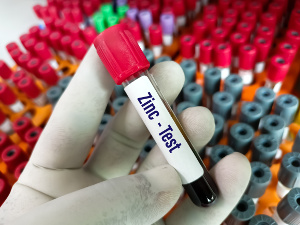 Zinc has many different functions in the immune defense and a zinc deficiency increases the risk of infections and diarrhea, which are global causes of disease and mortality. According to a study published in Physiological Reports, being zinc-deficient can also lead to influenza complications such as bacterial pneumonia that is potentially lethal. The authors assume that zinc plays a key role in the body’s defense against respiratory infections, including COVID-19. They write that factors such as unhealthy diets, ageing, alcoholism, intestinal diseases, and various types of medicine can increase the body’s need for zinc.
Zinc has many different functions in the immune defense and a zinc deficiency increases the risk of infections and diarrhea, which are global causes of disease and mortality. According to a study published in Physiological Reports, being zinc-deficient can also lead to influenza complications such as bacterial pneumonia that is potentially lethal. The authors assume that zinc plays a key role in the body’s defense against respiratory infections, including COVID-19. They write that factors such as unhealthy diets, ageing, alcoholism, intestinal diseases, and various types of medicine can increase the body’s need for zinc.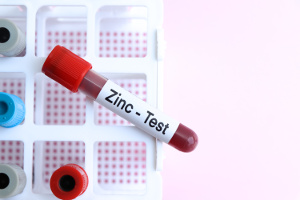
 Pneumonia is a serious disease, from which more than one million people die each year. A team of scientists from Melbourne University in Australia has now discovered how the trace element zinc strengthens the immune system and helps it fight pneumococcus, which is the leading cause of pneumonia. Their research also shows that zinc deficiencies are rather common. Getting too little zinc can be a result of poor eating habits as well as vegetarian and vegan diets. There is also the fact that ageing processes, sugar, birth control pills and inorganic iron supplements can impair the body’s uptake and utilization of zinc. If the immune system lacks this vital nutrient, it may increase your risk of sick days and perhaps even be life-threatening in worst case.
Pneumonia is a serious disease, from which more than one million people die each year. A team of scientists from Melbourne University in Australia has now discovered how the trace element zinc strengthens the immune system and helps it fight pneumococcus, which is the leading cause of pneumonia. Their research also shows that zinc deficiencies are rather common. Getting too little zinc can be a result of poor eating habits as well as vegetarian and vegan diets. There is also the fact that ageing processes, sugar, birth control pills and inorganic iron supplements can impair the body’s uptake and utilization of zinc. If the immune system lacks this vital nutrient, it may increase your risk of sick days and perhaps even be life-threatening in worst case.
 "After about one week of taking the Q10 supplement I could feel a huge difference," says 23-year old Alan Piccini, who has been suffering from extreme fatigue and muscle aches ever since he was a child.
"After about one week of taking the Q10 supplement I could feel a huge difference," says 23-year old Alan Piccini, who has been suffering from extreme fatigue and muscle aches ever since he was a child. “Taking capsules with co-enzyme Q10 has freed me of the severe side effects of my cholesterol lowering medicine,” Mrs Franken explains.
“Taking capsules with co-enzyme Q10 has freed me of the severe side effects of my cholesterol lowering medicine,” Mrs Franken explains.